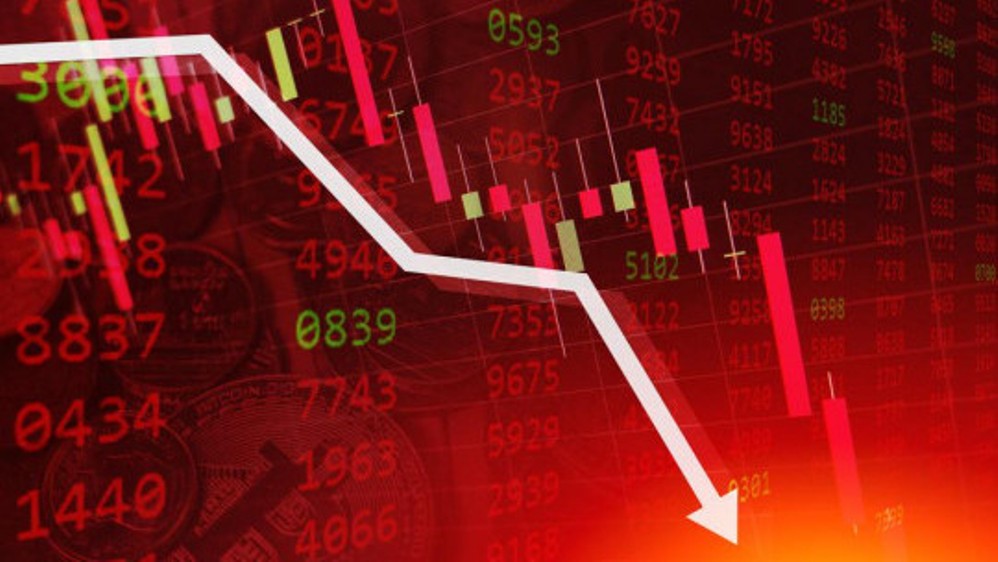Finance
Euro Expected to Rise as Safe Haven Amid Global Market Turmoil

The euro is likely to continue its ascent as a preferred safe haven amid ongoing global market volatility. The European Central Bank’s (ECB) upcoming rate decision in September will be crucial in determining the future trajectory of the euro.
Recently, the euro has experienced significant gains due to its perception as a safe haven currency during periods of market turmoil. The exchange rate between the euro and the US dollar surged to 1.1 on Monday, marking the highest level since January, before slightly retreating to just above 1.09 on Tuesday. These fluctuations mirror the global sentiment, with risk-averse environments boosting the euro during stock market declines, and risk-on sentiments applying downward pressure following market rallies.
Euro Reclaims Safe-Haven Status
Historically, the euro has been viewed as a secure investment due to its high liquidity, role as a major reserve currency, the substantial economy of the Eurozone, and the ECB’s stable policies. Recent challenges, such as the Ukraine conflict, economic sluggishness, and political upheavals, had somewhat dented this perception. However, the Eurozone’s integral role in the global economy has helped the euro regain its safe-haven status amid recent market turmoil, which was further amplified by a strengthening Japanese yen and a sharp decline in US stock markets.
Persistent Market Volatility
Despite a broad rebound in global stock markets, underlying conditions suggest that volatility may persist, which could continue to support the euro as a safe-haven asset. The recent intense sell-off in equity markets was primarily triggered by a surge in the Japanese yen following the Bank of Japan’s (BOJ) rate hike last week. This caused currency traders to unwind “carry trades,” leading to a reversal in the yen and a decline in the higher-yielding US dollar.
Carry trades involve borrowing in a currency with a low interest rate and investing in one with a higher rate, aiming to profit from the interest rate differential. Investors borrowing yen at lower rates to fund equity investments faced reversals when the yen strengthened, contributing to the global stock market sell-off.
ECB’s September Meeting in Focus
The upcoming ECB meeting is a significant factor in the euro’s future movement. Eurozone inflation unexpectedly rose to 2.6% in July, up from 2.5% the previous month, dampening expectations for a second rate cut by the ECB in September. Signs of economic recovery in the Eurozone could attract capital inflows as investors seek stability amid ongoing market volatility.
Conversely, the US Federal Reserve is expected to begin reducing interest rates in September due to growing recession fears and softened economic data. Market participants anticipate that the recent market turmoil will prompt the Fed to implement three rate cuts this year, further weakening the US dollar.
As the US dollar softens and the US stock market retreats, the euro’s status as a safe-haven currency is likely to be solidified. The euro’s appeal as a stable asset during times of global uncertainty may be reinforced by its relatively strong performance compared to other currencies, such as the Australian and New Zealand dollars, which are less affected by global trends.

-

 Business12 months ago
Business12 months agoSaudi Arabia’s Model for Sustainable Aviation Practices
-

 Business12 months ago
Business12 months agoRecent Developments in Small Business Taxes
-

 Politics12 months ago
Politics12 months agoWho was Ebrahim Raisi and his status in Iranian Politics?
-

 Business10 months ago
Business10 months agoCarrectly: Revolutionizing Car Care in Chicago
-

 Business10 months ago
Business10 months agoSaudi Arabia: Foreign Direct Investment Rises by 5.6% in Q1
-

 Technology12 months ago
Technology12 months agoComparing Apple Vision Pro and Meta Quest 3
-

 Politics12 months ago
Politics12 months agoIndonesia and Malaysia Call for Israel’s Compliance with ICJ Ruling on Gaza Offensive
-

 Technology12 months ago
Technology12 months agoRecent Developments in AI Ethics in America

















